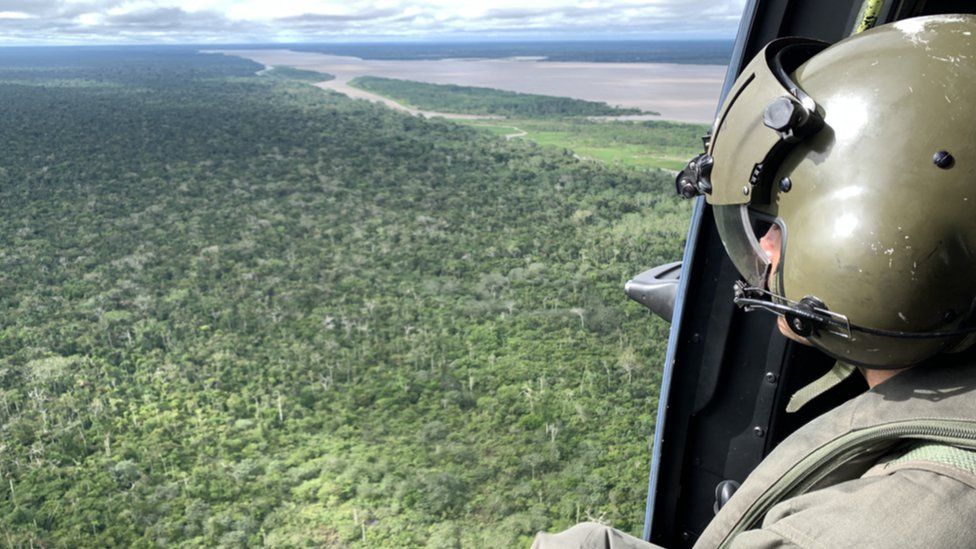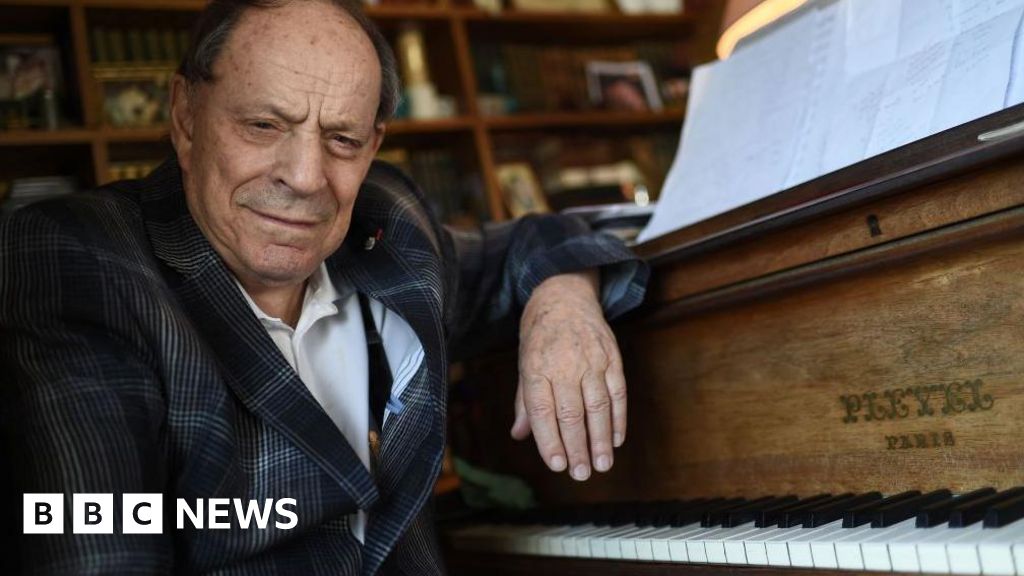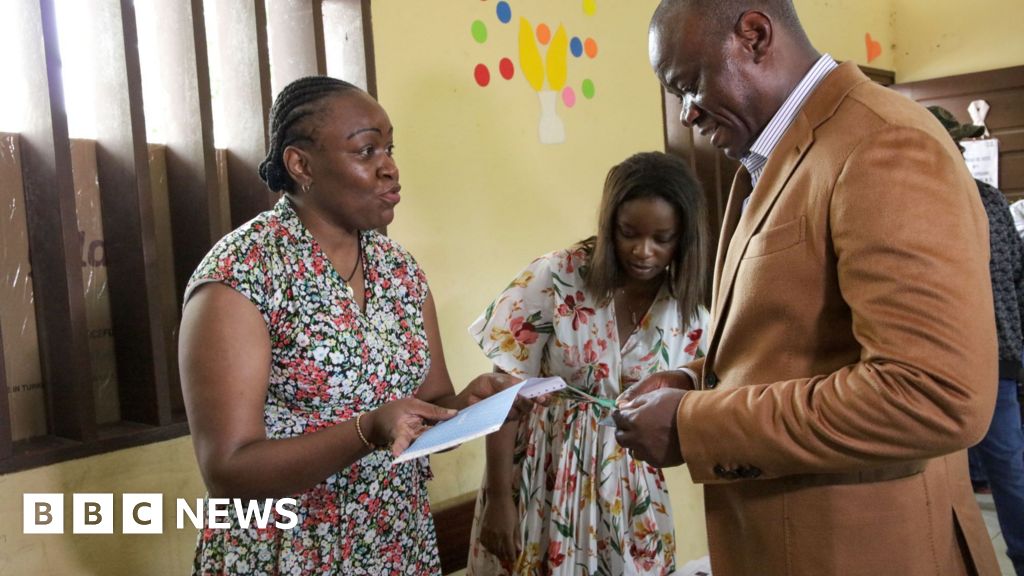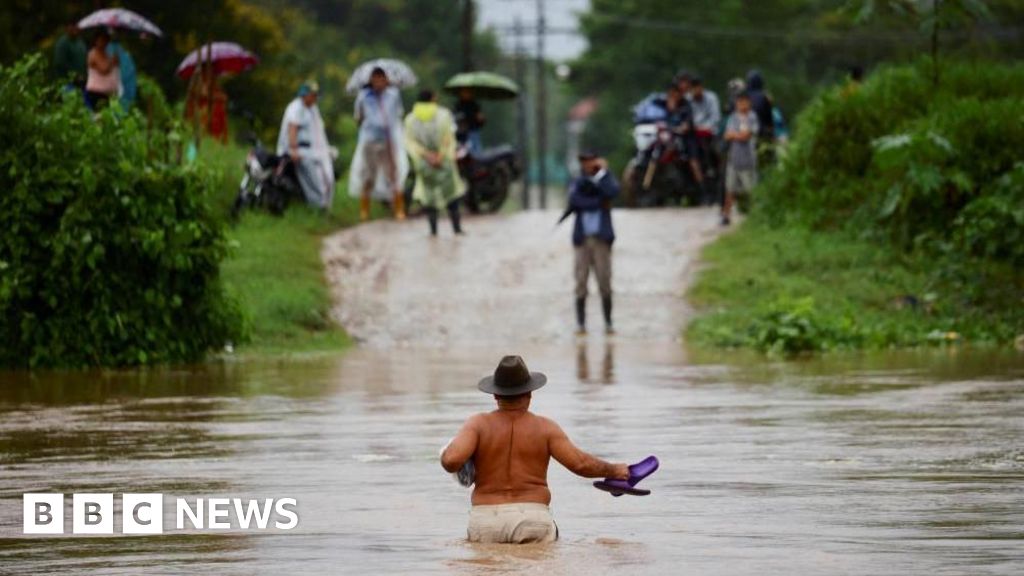ARTICLE AD BOX
By Katy Watson and Jessica Cruz
BBC News in Vale do Javari

Dom Phillips and Bruno Pereira went missing in a remote part of the Amazon rainforest on 5 June.
In the Javari valley, rivers act as roads. The larger tributaries are the highways, the 'furos' or the narrow waterways that appear in rainy season, akin to cross-country shortcuts.
Commuters here are mostly fishermen, carried along the waters in simple wooden boats. The rivers are full of incredible species such as the prized - and now endangered - giant Pirarucu.
It's the beauty that has made this remote region one of the most dangerous parts of the Amazon.
Illegal fishing and poaching has become rife. And being right on the border with Peru and Colombia, it's also become a well-known trafficking route for cocaine.
It was this conflict that Dom Phillips and Bruno Pereira were documenting.
Dom Phillips was writing a book on saving the Amazon. Bruno Pereira, a specialist on isolated tribes, was introducing him to his contacts and friends. Both were very familiar with the terrain.
Their disappearance has hit people here hard.
More than 1000km away from the state's capital Manaus, the community feels abandoned by the authorities.
Over the last few years, there have been sweeping cuts to indigenous protection budgets. Under President Bolsonaro - a man who has little time for the indigenous communities or environmental agencies - the indigenous protection agency FUNAI has been weakened, surveillance has fallen, as too have fines doled out to those who break the law.
It's against this backdrop that Bruno Pereira played such an important role in the community here. He helped register and map incidents to be able to denounce crimes to the state. Teaching people how to use drones and GPS to track the poachers and fishermen.
"The state abandoned us, not just here in the Javari Valley but in other indigenous territories too," says one indigenous leader.
He asks not to be identified. Their surveillance work creates enemies. "It's the government's fault - not giving enough protection and taking the lives of innocent people," he adds.
Further down the river is the community of São Rafael. There is a row of a dozen wooden houses on stilts with a boardwalk running along the length of them.
Search teams say they found possible human remains in the river.
This was the village that Dom Phillips and Bruno Pereira visited shortly before going missing. Five minutes down river from here is Sao Gabriel, where the suspect, Amarildo da Costa, lived.
Everyone in these riverside communities lives by fishing - including Amarildo. Mostly it's for their own consumption and to earn some extra money. But with overfishing in the more populated areas - and the chance to earn big money selling fish on the sly - some fishermen encroach on indigenous land to find valuable species to sell.
The indigenous territory is just 20 minutes by boat from here.
"We fish Pirarucu, it's what's around us," says Sao Rafael resident, Juliao. "When we're lucky we get two or three - there are a lot of fishermen here. We fish to survive."
There are strict rules about fishing Pirarucu because of its endangered status.
But this isn't just about good guys versus bad guys. For people who live on this river, it's about poverty and survival.
At the end of the boardwalk lives Moreno. He denies any illegal fishing goes on around here. He doesn't want to talk about the disappearance of Dom Phillips and Bruno Pereira either.
"I didn't know, I didn't' see anything, I don't have any information," he says, closing up quickly. "Nobody has anything to do with it."
I ask him about Amarildo da Costa.
"I don't know anything," he repeats.
That seems unlikely. The village a few minutes drive downstream is about the same size as Sao Rafael where you can't not know everybody. But the fear is clear - say too much to outsiders and there may be consequences.
Our river guide is Rubeney de Castro Alves. He and his son have been running a fishing tourism business called Javari Expeditions since 2015. It was in his hotel in the nearby town of Atalaia do Norte that the two men were staying while they were working here.
"We've seen things get worse since we started," he says.
His idea was to bring tourists to these communities and, through conservation, people could learn from each other. "These communities feel more and more abandoned, they don't have any federal government support," he says.
And so they're easy prey for drug-traffickers trying to co-opt locals to work for them. The cartels are a formidable enemy for anyone wanting to bring back the rule of law in this area and protect the environment.
While people here are shocked by what's happened, there is also a sense of inevitability.
"The threats aren't a new thing," explains Manoel Chorimpa, a leader of the Marubo indigenous community. "What we are seeing is a tragedy foretold."

 2 years ago
15
2 years ago
15








 English (US)
English (US)